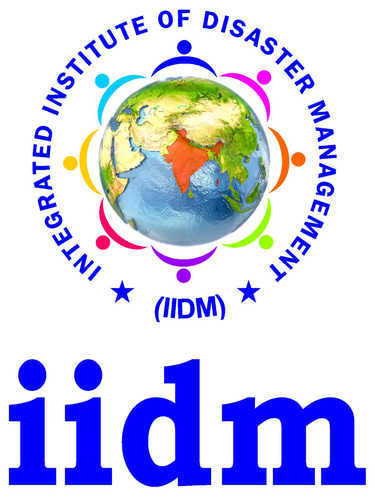WAY FORWARD
A. To DISSEMINATE the information to all the citizens of the world about our present scenario of seasonal and Climate Change and its adverse effects due to global warming;
B. To focus on streaming of DRR & R [Disaster Risk Reduction and Resilience, CCRR&R [ Climate Change Risk Reduction & Resilience] and greenhouse gases like Water vapor – H2O, Carbon dioxide -CO2, methane -CH4, Nitrous oxide – N2O
C. To train maximum number of Volunteers, youth groups, line department officials, students and teaching faculties and others.
D. To be a member of both central[NDMA]and States government [SDMAs] to assist[24X365] and implement their various schemes and programs from time to time.
E. In near future, IIDM will get permission from concern government to start its own regular curriculum activities in India and MOU with other institutions for Disasters, Climate Change, Bio diversity, SDGs, other environmental studies training courses on Online and offline, face to face programs, etc.
F. IIDM will try to be bridge between government and general public to fulfil both needs and requirements.
G. IIDM will work for pollution free country / nation by adopting and appreciating conversional energies, recycling products, Planting trees, etc.
H. Revisiting all rural and urban planning in some innovative ways, New normal, bounce back or forward, Amplifying new tunes and methods.
I. To make India Greener and Resilient
J. To support to create new vulnerable and nature-based policy as per circumstances.
K. To bring new concepts and successes stories from other countries.
L. To work for good Geophysical, Meteorological, Climatological, Hydrological, Biological, Topographical etc.
M.To build a safe and disaster resistant Tamil Nadu through systems approach, inclusive development and mainstreaming disaster risk concerns into the development ethos of the State.
N. To adopt systems approach for sustainable disaster risk reduction and enhance resilience of the community.
O. The focus areas for risk reduction will be natural resources conservation on watershed basis, comprehensive management of river basins, sustainable management of ecologically fragile areas, sustainable agricultural development, mainstreaming of disaster into developmental plans, social inclusion and integrated development of the vulnerable areas.
P. To provide Career Development training to the needy people through TNA [Training Need Assessment] towards Skills, Livelihood and Capacity building.
Q. Community based approach to solve socio-economic problems.
R. Overall providing well and good awareness, preparedness and protections at pre, present and post disasters periods through our SAT – systematic Approach Training followed by SOP – Standard Operation Procedures as per NDMA & SDMA.
S. To take Venture decisions as per needs and requirements of the situations for all types of training and programmes etc..
